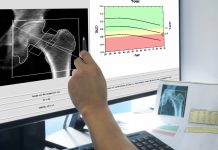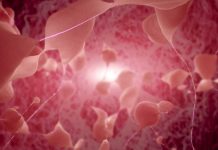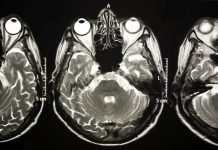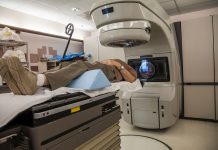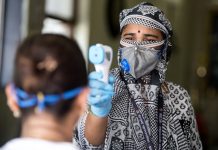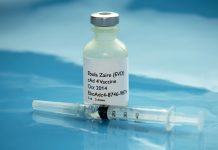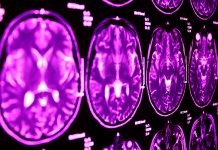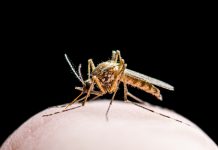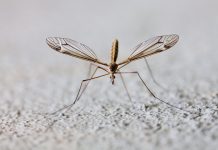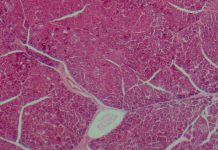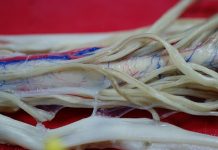The prevalence of Brittle Bone Disease
Dr Roger J. Young, Professor at Saba University School of Medicine, walks us through Brittle Bone Disease, otherwise known as Osteogenesis Imperfecta Type I.
Research reveals that anti-TNF drug reverses Dupuytren’s disease
A clinical trial at Oxford University has found that a drug used for rheumatoid arthritis can reverse Dupuytren’s disease, if taken early on.
Huntington’s Disease: The Importance of Brain Banking
Dr. James E Goldman and Dr. Osama Al-Dalahmah from the Department of Pathology and Cell Biology at Columbia University, discuss the importance of brain banking from individuals with Huntington’s disease.
Improving the quality of life for people with brittle bone disease: Osteogenesis Imperfecta
Pascale V Guillot, at the University College London, looks toward improving the quality of life for those with Osteogenesis imperfecta, a chronic health condition called brittle bone disease.
Searching for a novel marker of preclinical Alzheimer’s disease
Research suggests that multisensory integration could be used as a novel marker for preclinical Alzheimer’s disease given reported associations between magnitude of visual-somatosensory integration and important cognitive and motor outcomes.
Cellular & biological pathways from studies on communicable diseases
Adonis Sfera and Zisis Kozlakidis provide recent insights into cellular and biological pathways from studies on communicable diseases.
What we need to make breakthroughs in dementia research
David Thomas, Head of Policy (Access and Innovation) at Alzheimer’s Research UK, looks at what we need to make breakthroughs in dementia research.
Scientists reveal link between food insecurity and diabetes
The link between food insecurity and diabetes is stronger than previously thought - with people who are more likely to be hungry experiencing a higher rate of diabetes, ten years on.
20 countries report cases of severe hepatitis in children
The World Health Organisation reveal that 20 countries are now reporting cases of severe hepatitis in children, after an initial outbreak in the UK.
Scientists predict 4,000 new animal viruses by 2070
Scientists say that 2°C of warming by 2070 could create 4,000 new animal viruses, which could become COVID-level outbreaks.
Ukrainian patients lose access to multiple sclerosis drug trial
Biotechnology giant Roche warns that multiple sclerosis (MS) drug trials are compromised in Ukraine - with patients losing access to crucial treatment.
Ebola haemorrhagic fever outbreak in Democratic Republic of the Congo
A new case of Ebola haemorrhagic fever has been detected in the Democratic Republic of Congo - healthcare experts say "time is not on our side".
New treatment for cryptococcal meningitis in people living with HIV
The WHO have new treatment guidelines for cryptococcal meningitis in people living with HIV - a single high dose of liposomal amphotericin B.
Three rare brain diseases that attack your language skills
According to NorthWestern Medicine, there are three different brain diseases that attack the language areas in the left hemisphere of the brain.
Understanding the immune system to create new malaria treatments
By analysing patient samples, researchers believe they now understand how the human immune system protects the body from malaria - opening the door to new malaria treatments.
Noncommunicable diseases strategy to save 50 million people by 2030
The World Health Organisation, in liaison with Ghana and Norway, announced a noncommunicable diseases strategy that aims to save 50 million people by 2030.
Understanding Flaviviruses: Deciphering insect-borne virus strategies
Understanding the infection strategy of mosquito-borne viruses known as flaviviruses is key in the future development of treatments and possible vaccines
Late-onset alcohol abuse can be symptom of dementia
According to new results in the Journal of Alzheimer’s Disease, patients who start abusing alcohol in later life – after age 40 – maybe doing so due to underlying dementia
Study shows 70% of participants achieved type 2 diabetes remission
In a ground-breaking moment, scientists reveal that 70% of "healthy" BMI participants were able to achieve type 2 diabetes remission.
Scientists use AI and robotics to repair spinal injury symptoms
A team at Rutgers University have figured out how to regenerate tissue for spinal injury symptoms - using AI and robotics to create therapeutic proteins.


